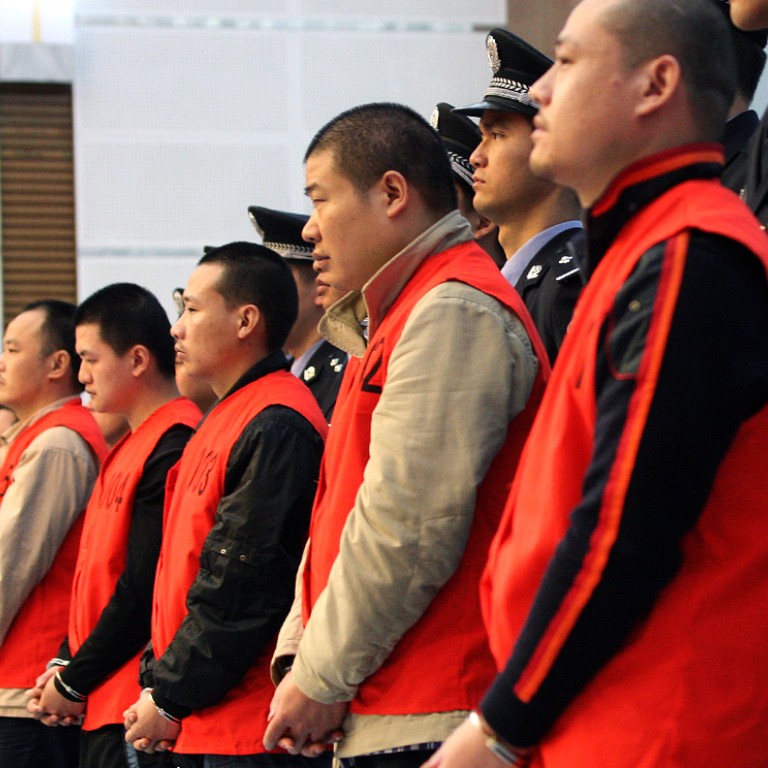
China considers abolishing death penalty for nine crimes
Number of offences that lead to execution to fall from 55 to 46 after reforms pledge
Beijing is considering excluding nine crimes, including illegal fundraising, from the list of offences punishable by death.
This would bring down the number of crimes carrying capital punishment from 55 to 46 and follows Communist Party pledges of broader reforms to the legal system at its fourth plenum last week.
Legal experts described it as a step forward in improving the justice system as the nation faced mounting international pressure to scrap the death penalty.
There was public uproar in 2012 when a local court upheld the death sentence against businesswoman Wu Ying for defrauding investors out of 770 million yuan (HK$973 million). Later in the same year, the Supreme People's Court overturned the death penalty in the review of her case.
This is the country's second move to shorten the list of crimes that are punishable by death, after exempting 13 economic crimes in 2011.
Other crimes covered in the latest review include forcing a person to engage in prostitution and counterfeiting currencies.
Legal experts said the proposed revision would have little impact as most death penalties were imposed for violent crimes, murder and terrorism.
"The death penalty is rarely applied for these nine offences," said Mo Shaoping, a Beijing-based lawyer. "But it is a realistic step forward … You cannot ask a country that has 68 crimes punishable by death in its first edition of Criminal Law to cross off the most violent offences like murder from the list first."
William Nee, a China researcher from human rights group Amnesty International, said the nation was looking to get rid of non-violent crimes first and "get closer to the international standard".
"But if Beijing wants to claim that they are making progress, which could be the case, they need to take the next step and prove it to the outside world," Nee said, calling for full transparency on death penalties.
Beijing treats the number of people it executes as a state secret. According to the Dui Hua Foundation - a US-based non-governmental organisation that seeks the release of political prisoners on the mainland - the country executed around 2,400 people in 2013. That was an 80 per cent drop from 2002, when 12,000 people were estimated to have been executed.
The draft amendment also proposes revising the definition of molestation to include men. Under the current laws, only women are recognised as victims of molestation.
And to root out corruption, the proposed amendment introduces a new crime of "taking gift money" [at weddings and funerals], and promises "the same penalty to all officials who take bribes". Currently the harshness of the penalty is linked to the size of the bribe.
The amendment also says anyone guilty of spreading fake information regarding natural disasters, outbreaks of disease, and police investigations will be subject to a maximum penalty of seven years' imprisonment.
SPARED
Illegal fundraising
Arranging prostitution
Forcing a person to engage in prostitution
Counterfeiting currencies
Smuggling counterfeit currencies
Smuggling weapons and ammunition
Fabricating rumours to mislead others during wartime
Obstructing soldiers performing their duty
Smuggling nuclear materials

